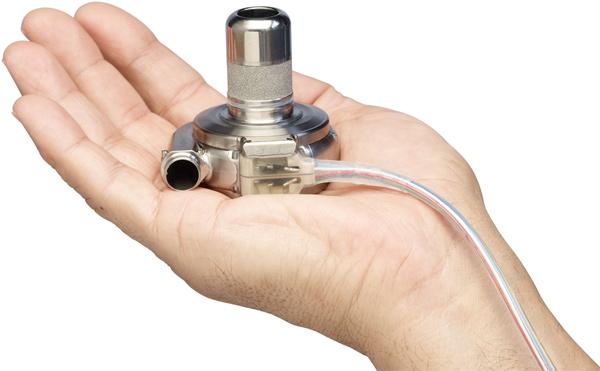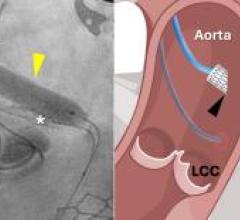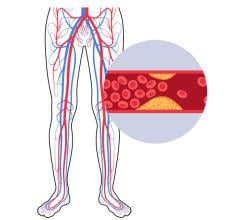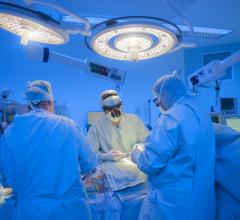
December 6, 2012 — The U.S. Food and Drug Administration (FDA) granted premarket approval (PMA) for the HeartWare Ventricular Assist System (VAS) designed as a bridge to cardiac transplantation.
The HeartWare Ventricular Assist System (VAS) is a device that helps deliver blood from the heart to the rest of the body. It is used in some patients who have end-stage heart failure and are waiting for a heart transplant. The system includes a pump implanted in the space around the heart (pericardium) and a controller that controls the speed and function of the pump. The controller remains outside the patient’s body and is connected to the pump by a flexible tube that passes through the patient’s skin. The controller is powered either by batteries or a power supply that can be connected to a standard electrical power outlet.
The system works with the patient’s own heart to pump blood. In a healthy heart, the lower chamber (left ventricle) pumps blood through the body. In a heart weakened by heart failure, the left ventricle may not be strong enough to pump the blood sufficiently. The HeartWare VAS helps the heart by supporting the weak left ventricle and providing additional blood flow.
Blood flows from the left ventricle into the pump through the pump inlet. The pump then moves blood into the aorta. This is accomplished by the rotation of the pump's impeller, which speeds up the blood flow and also causes a difference in pressure between the pump inlet and outlet.
Because there are a limited number of donor hearts available, the HeartWare VAS provides necessary cardiac support to the patient until a suitable heart is available. This is often called bridge to transplantation. The HeartWare VAS is used as a bridge to transplantation in cardiac transplant candidates at risk of death from end-stage heart failure that is unmanageable by standard medical therapy. The device is designed for in-hospital and out-of-hospital settings, including transportation by fixed-wing aircraft or helicopter.
The FDA said a clinical trial showed that treatment with the HeartWare VAS kept the majority of patients alive long enough to receive a heart transplant. In the study, 127 out of 140 patients (91 percent) either survived for at least 180 days on the pump (without having to get a new pump) or received a heart transplant within that time. Six (6) out of the 140 patients (4 percent) died within 180 days of being implanted with their first HeartWare VAS.
As with any major surgery, there are risks involved with the surgery to implant the HeartWare device. There are also risks and complications with the device itself, and these include death, stroke, infections, and bleeding.
The HeartWare VAS should not be used in patients who cannot tolerate blood thinners (anticoagulation therapy) because these medications are required to prevent blood clots from forming in the pump.
The FDA set expiration dating for this device at 25 months for the implant kit, accessories and surgical tools of the system, and 12 months for the controller and battery pack.
In addition to the FDA’s annual report requirements, HeartWare must provide additional data on newly implanted patients in an ongoing post-market study. The study will consist of prospective enrollment of patients newly implanted with the HeartWare VAS and who may also be concurrently enrolled in the INTERMACS Registry. At least 1,200 patients (600 HeartWare and 600 FDA-approved VADS other than HeartWare) patients from at least 12 sites in the United States will be followed annually according to standard of care through 24 months. The primary endpoints will be success based on those who are alive, transplanted or recovered at 180 days.
For more information: www.heartware.com


 January 15, 2026
January 15, 2026 









